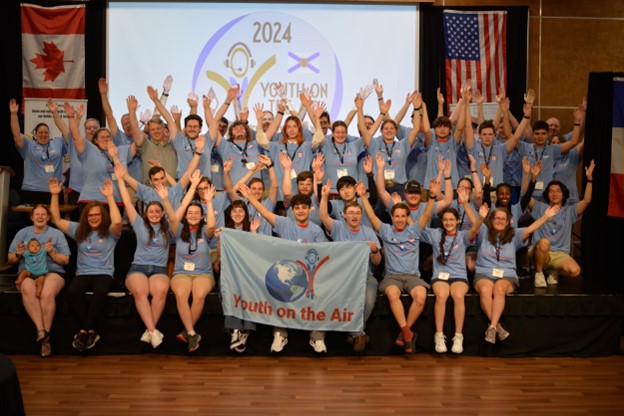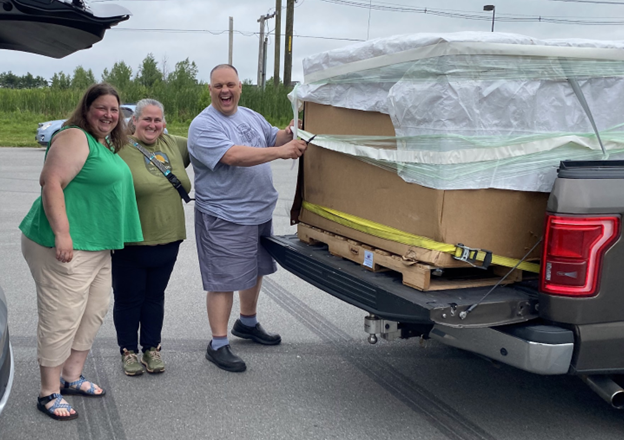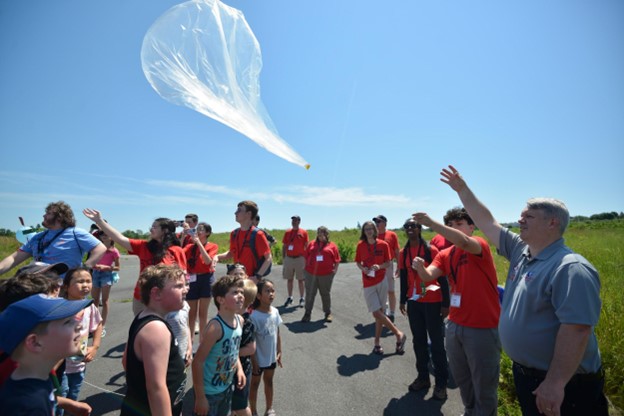After seeing much success the first few years, Youth On The Air (YOTA) Camp in the Americas returned this past summer to Halifax, Nova Scotia. Approximately 30 campers from six different countries, ranging from 15 to 25 years old, attended.
Throughout the week, campers took part in sessions on satellite operating, high altitude ballooning, CW, soldering/kit building, POTA, and more—all led by other young people.
More importantly, the campers (including myself) had the opportunity to meet other young hams and form friendships that will last a lifetime.

Every YOTA camp is full of new adventures, and this year was no different.
We started planning for this year’s camp as soon as last year’s event in Ottawa ended, since planning an event through emails and Zoom meetings can be a little tedious. We started looking at details like what we would do during this year’s camp, where we’d host specific sessions on and off campus, and what sessions to have. Then we started creating the schedule.
By November 2023, we’d started writing press releases and posting information about camp to our social media to build excitement and spread the word about where and when it would be. We also started looking for young people to lead sessions, particularly returning campers from the previous years.
As we got closer to camp, we had Zoom meetings about once a month to discuss important issues and things that came up while we were emailing back and forth. It seemed like everything was straightened out and ready to go, but Murphy decided that would be the perfect time to remind us of his law:
Anything that can go wrong…will!
We arrived in Halifax the Friday before camp started and encountered a “small” problem. The pallets with nearly all of the supplies for camp were stuck at customs in Massachusetts, and the office would be closing in about half an hour.
We racked our brains for a solution and made a few phone calls.
Eventually, we connected with The Ham Radio Guy, Marvin, W0MET, who offered to drop everything, pick up the pallets, and even drive them to Maine to meet us at a halfway point so we could pick them up.
Very early the next morning, Julie Rapp and Colleen, KB8VAQ, started the 15-hour drive to Maine from Halifax while the rest of us stayed back and started setting up what we could. Finally, while we were at dinner, we got the message that Colleen and Julie had gotten through customs, crossed the border with the pallets, and would get back at about 2 am Sunday.
We all got up bright and early on Sunday and worked together as fast as we could to unload everything and set it up. We managed to get almost everything straightened out, although there would be a running joke throughout the week whenever we couldn’t find something:
“Where is X?”
“Oh, probably on the pallets!”

With setup complete and all t’s crossed and i’s dotted, camp was a go!
Campers started arriving at noon to get settled into their dorms at Mount Saint Vincent University and meet their roommates until the opening ceremony at five (watch a video of the opening ceremony here).
After the opening ceremony we had a quick tour of the shack and antennas before we could start operating. The next morning, we started the first day of camp with logging and SDR sessions. Then, the ID-52 handheld transceivers that Icom donated for us to use all week were passed out and our Icom rep, Rose, VA3RZZ, led a session about D-STAR.
After lunch, we headed outside for our pico balloon launch, led by Wintta, VA3WGY, and Stefan, VA3STQ.

Unfortunately, both balloons hit a storm a few hours later and went down just north of Sable Island.
After launching our balloons, we had sessions about nets and CW, followed by a session where campers and staff could share resources and groups for young hams. We all had dinner and then the final session of the day was “Train the Trainer,” where some of the camp staff explained how to run a YOTA camp, from planning and preparation to actually hosting the event.
Tuesday morning, campers split up into either a kit-building or ARDF session. After that, we had our ARISS contact, led by Ruth, KM4LAO. Tuesday evening, we had dinner in downtown Halifax before going on a tour of the city and the harbor. After the tour, it was back to the university for some operating time or socializing before lights out.
On Wednesday, we got to do some satellite operating before a presentation from Dr. Yaroslav “Yarko” Pustovyi about Maritime Launch Services. After his presentation, it was time to get ready to activate Georges Island the next day. Once we finished up our POTA prep, we had some more time to operate VE1YOTA or socialize.
On Thursday, it was time for POTA! We split up into groups and rotated which location we were operating from or touring. My group started out at the HMCS Sackville, where we got to tour the ship and learn more about its history before getting on the air with the station on board.
After we made some contacts there, it was time to head to Georges Island for POTA. We took a ferry over and got on the air straight away. After some antenna troubleshooting, we finally started making contacts and got a few really large pileups!
After that, my group took the ferry back and got to tour the Maritime Museum of the Atlantic and even operate from the station there. Then, it was time to go back to the university for dinner and shack/social time.
On Friday morning we had our closing ceremony (watch here), returned our radios, said our goodbyes, and started making plans to see each other at camp next year!
We’ve already started planning for camp in Denver, Colorado, and hope to see you there!
You can find information about YOTA Camp 2025 here. You can apply to attend starting December 1. Click here for the Denver 2025 YOTA Camp application page.
***

